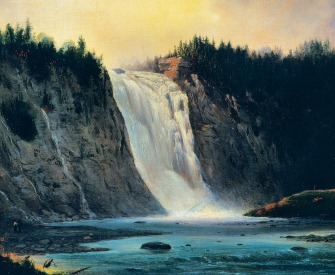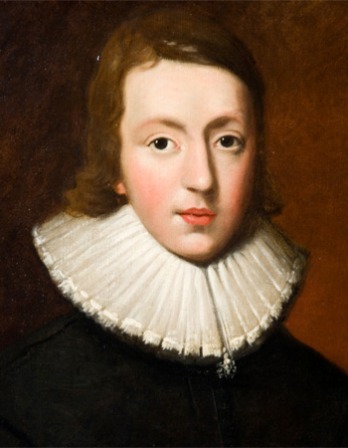I wish you to mark that in the single state of Virginia there are seventy-one crimes for which a colored man may be executed, while there are only three of these crimes, which when committed by a white man will subject him to that punishment. There are many of these crimes which if the white man did not commit, he would be regarded as a scoundrel and a coward.
In south Maryland, there is a law to this effect: that if a slave shall strike his master, he may be hanged, his head severed from his body, his body quartered, and his head and quarters set up in the most prominent place in the neighborhood. If a colored woman, in the defense of her own virtue, in defense of her own person, should shield herself from the brutal attacks of her tyrannical master, or make the slightest resistance, she may be killed on the spot. No law whatever will bring the guilty man to justice for the crime. But you will ask me, can these things be possible in a land professing Christianity? Yes, they are so; and this is not the worst.
No, a darker feature is yet to be presented than the mere existence of these facts. I have to inform you that the religion of the Southern states, at this time, is the great supporter, the great sanctioner of the bloody atrocities to which I have referred. While America is printing tracts and Bibles; sending missionaries abroad to convert the heathen; expending her money in various ways for the promotion of the gospel in foreign lands, the slave not only lies forgotten, uncared for, but is trampled underfoot by the very churches of the land. What have we in America? Why we have slavery made part of the religion of the land. Yes, the pulpit there stands up as the great defender of this cursed institution, as it is called. Ministers of religion come forward, and torture the hallowed pages of inspired wisdom to sanction the bloody deed. They stand forth as the foremost, the strongest defenders of this “institution.” As a proof of this, I need not do more than state the general fact, that slavery has existed under the droppings of the sanctuary of the South, for the last two hundred years, and there has not been any war between the religion and the slavery of the South. Whips, chains, gags, and thumbscrews have all lain under the droppings of the sanctuary, and instead of rusting from off the limbs of the bondman, those droppings have served to preserve them in all their strength. Instead of preaching the gospel against this tyranny and rebuking this wrong, ministers of religion have sought, by all and every means, to throw in the background whatever in the Bible could be construed into opposition to slavery, and to bring forward that which they could torture into its support. This I conceive to be the darkest feature of slavery, and the most difficult to attack, because it is identified with religion, and exposes those who denounce it to the charge of infidelity. Yes, those with whom I have been laboring, namely, the old organization Anti-Slavery Society of America, have been again and again stigmatized as infidels, and for what reason? Why, solely in consequence of the faithfulness of their attacks upon the slaveholding religion of the Southern states, and the Northern religion that sympathizes with it. I have found it difficult to speak on this matter without persons coming forward and saying, “Douglass, are you not afraid of injuring the cause of Christ? You do not desire to do so, we know; but are you not undermining religion?” This has been said to me again and again, even since I came to this country, but I cannot be induced to leave off these exposures. I love the religion of our blessed Savior, I love that religion that comes from above, in the “wisdom of God, which is first pure, then peaceable, gentle, and easy to be entreated, full of mercy and good fruits, without partiality and without hypocrisy.” I love that religion that sends its votaries to bind up the wounds of him that has fallen among thieves. I love that religion that makes it the duty of its disciples to visit the fatherless and widow in their affliction. I love that religion that is based upon the glorious principle, of love to God and love to man; which makes its followers do unto others as they themselves would be done by. If you demand liberty to yourself, it says, grant it to your neighbors. If you claim a right to think for yourselves, it says, allow your neighbors the same right. It is because I love this religion that I hate the slaveholding, the woman-whipping, the mind-darkening, the soul-destroying religion that exists in the Southern states of America. It is because I regard the one as good, and pure, and holy that I cannot but regard the other as bad, corrupt, and wicked. Loving the one I must hate the other; holding to the one I must reject the other, and I, therefore, proclaim myself an infidel to the slaveholding religion of America.
Audio brought to you by Curio, a Lapham’s Quarterly partner
From a speech. At a public meeting hosted by the British and Foreign Anti-Slavery Society at Finsbury Chapel, Douglass spoke to a crowd of some 2,500 people for nearly three hours on the subject of slavery in America. The publication of his Narrative of the Life of Frederick Douglass the previous year had precipitated his lecture tour of England, Scotland, and Ireland, which lasted for twenty months. He founded the North Star in 1847, lobbied for the Fourteenth and Fifteenth Amendments in the 1860s, and served as the U.S. minister to Haiti from 1889 to 1891.
Back to Issue




